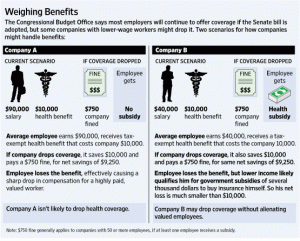In the introduction to F.A. Hayek’s The Road to Serfdom, the late economist Milton Friedman put his finger on the backdrop to the growth of collectivism: “The argument for collectivism is simple if false; it is an immediate emotional argument. The argument for individualism is subtle and sophisticated; it is an indirect rational argument.”
Friedman best articulated why idiots don’t understand freedom.
Obama is an idiot. The guy really doesn’t comprehend how it is that he can’t create jobs. He keeps sprinkling state star dust, but nothing happens. He honestly believes that as the head of an entity that only consumes wealth and has no means of producing it, he should, nevertheless, be able to generate viable jobs. Indeed, BO’s bewildered, because his are the economics of voodoo..
If it is to expand, nuclear power should be privately financed. But, as explained, BO has a hard time with the market place, being too dim to understand its workings. So today, instead of lifting the 40-year-old restrictions on the construction of nuclear plants and leaving the rest to an industry with skin in the game, BO has decided “to back the construction of two nuclear reactors with $8.3 billion in federal loan guarantees.”
By BO logic, a wave of the wand is bound to bring into being a viable industry.
Not quite.
“We are missing a historic opportunity to expand nuclear power the right way [through private financing] and instead settling for a handful of government-subsidized reactors,” says Jack Spencer, a research fellow for nuclear energy policy at the conservative Heritage Foundation.
The same species of dimness inflicts the First Lady. When Michelle O launched her Fat-Based Initiative, the FLOTUS showed that she too is inured to the workings of the market. MO was challenged as to whether she was not interfering in the lives of Americans, to which she answered that she agreed government should not meddle. Seamlessly, she went on to explain that “We,” as in the Royal We, needed to offer parents options… and educate them, etc.
MO had drawn a complete blank; unable was she to even fathom how information would disseminated outside the purview of government.
Update I: STIM TURNS 1 TODAY. Obama understandably defends it, but so do the Keynesians—proponents of centralized banking—at the Wall Street Journal. As I wrote, “How much to hand out; who to hand it to; which handout makes the best use of taxpayer money…—that’s the depth of the ‘philosophical’ to-be-or-not-to-be among Republikeynsians.”
No premise of central banking is more honored than the idea that the system needs a lender of last resort, without whom holders of good collateral can go belly up in a liquidity panic
Obama’s defense has far more credibility, given that he is a central planner, and the WSJ poses as pro-market:
Obama, in a White House speech, said he believed the stimulus will save or create 1.5 million jobs in 2010 after saving or creating as many as 2 million jobs thus far.
His point was to show that the stimulus, while admittedly unpopular, had the effect of keeping the U.S. economy from plunging into a second Great Depression.
‘Our work is far from over but we have rescued this economy from the worst of this crisis,’ he said.
Update II (Feb. 18): BEHOLD A COMMISSION. “Government commissions are where accountability goes to die.” It is for reason that “President Barack Obama named a bipartisan panel on Thursday to tackle exploding U.S. budget deficits and promised it broad leeway to recommend ways to put the country on a path to fiscal responsibility.”
A commission can do absolutely nothing about the debt and the deficits this president, like his predecessor, has wracked-up. What it can do is put distance between the president and the “tough decisions” the country he is bankrupting must make.
Taxes will be raised, despite Obama’s promise “during his campaign that families making less than $250,000 would not face tax increases.”
Fishy accounting, in the final analysis, will allow this smooth, slippery president to claim that he has tackled a problem Bush created and he exacerbated.
Quote: “There’s no doubt that we’re going to have to also address the long-term quandary of a government that routinely and extravagantly spends more than it takes in.”
Question: Are Americans the kind of meatheads that’ll accept BO’s version of events whereby he and his Big-Spender Government are two different entities, never the twain shall meet?

